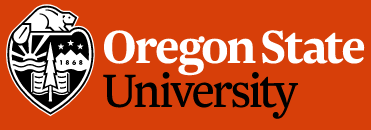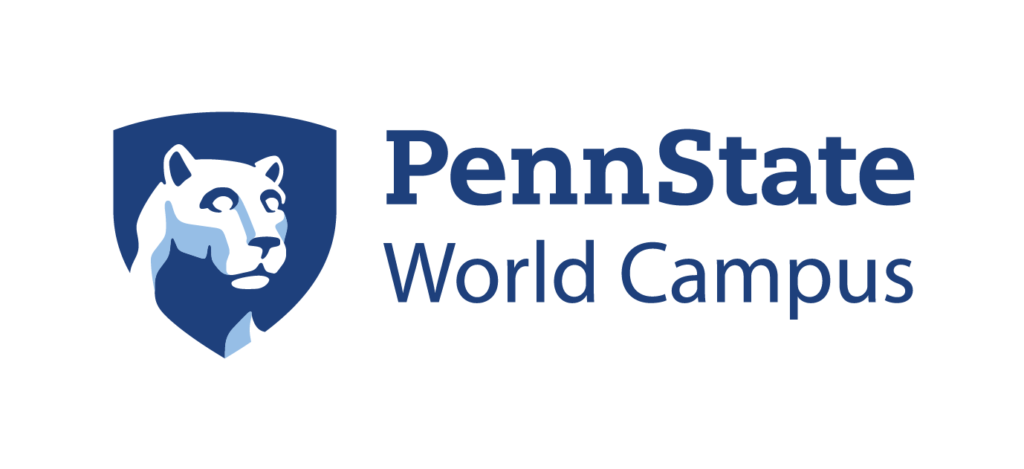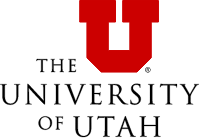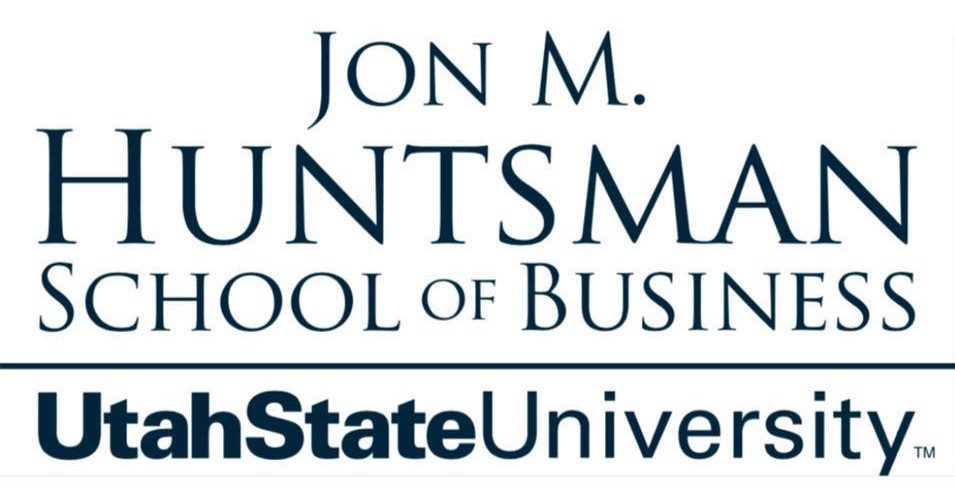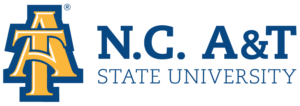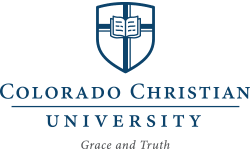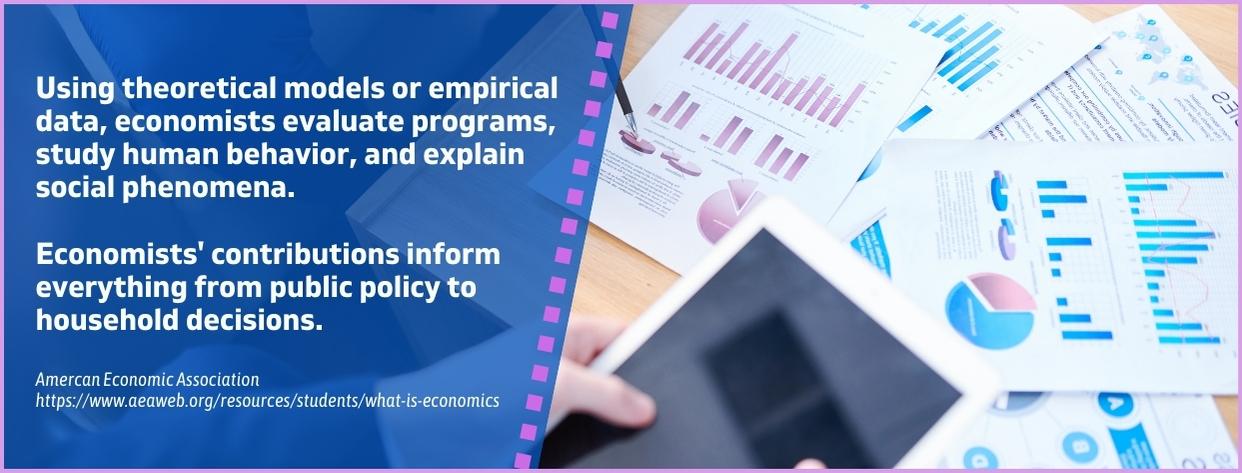Find Your Perfect School
Students enrolled in online BS in Economics programs study scarcity and its impact and implications on the production of goods and services. Their studies also include the allocation and use of resources; the social, political, and historical factors affecting economic development; and the economic welfare of societies.
The best bachelor’s degree in economics program has an interdisciplinary approach that enables students to gain a strong liberal arts and math foundation. Since economics is also a social science, students are exposed to diverse fields. The wide variety ranges from political science, psychology, and sociology to engineering, medicine, and business administration.
Quick audio summary:
Quick Summarization
Students in online economics bachelor’s degree programs prepare for successful careers in diverse industries. The combination of technical and transferable skills makes them suitable for the business, law, and finance industries, among others. With work experience and continuing professional development, career advancement can be fairly quick.
But it’s important to choose the best bachelor’s in economics program due to the stiff competition in the job marketplace! Regional accreditation is key, as well as an emphasis on academic excellence and experiential learning.
Methodology
An online undergraduate Economics program prepares students for a stable career in a thriving and dynamic industry! It pays to find the most appropriate program that matches your career goals.
Here are the factors that we considered in putting together the best online BS in Economics programs:
- Delivered online or in a blended format for the convenience of adult learners,
- Emphasis on the academic expertise for competence in Economics, thru the courses that focus on the laws, policies, and principles of the discipline,
- Development of interpersonal qualities such as collaboration, communication, attention to detail, leadership, critical thinking, and problem-solving skills for career success,
- An academic faculty consisting of professors who hold terminal Economics degrees, experienced economists, and seasoned subject teachers,
- Various financial aid opportunities, including federal assistance, scholarships, and Military Aid,
- Appropriate accreditation status.
Please read our Methodology for a deeper look into our ranking process.
10 Best Online BS in Economics Degree Programs

Oregon State University
The Bachelor of Science in Economics program at OSU combines didactic instruction and hands-on experiences. Students can participate in faculty-led economics research programs.
The online economics degree program is offered by the College of Liberal Arts, among the best online liberal arts colleges. Students earn the economics bachelor’s degree upon completion of 180 credits.
Core courses include:
- Introduction to Microeconomics
- Introduction to Macroeconomics
- Advanced Macroeconomic Theory
- Introduction to Economic Research
- Public Policy Analysis
Students interested in earning the best bachelor’s in economics online degree choose from three options:
- General economics
- Law, economics, and policy
- Managerial economics
Online students in the bachelor’s degree program receive the same degree as on-campus students. Library services, free tutoring and success coaching services, and career guidance are available.
OSU’s economics degree program is among the most affordable. Financial aid options are available. Prospective students choose from four start dates.
Oregon State, a regionally accredited institution by the Northwest Commission on Colleges and Universities, is among the best online colleges according to the U.S. News & World Report.
Pennsylvania State University
Students in Penn State’s Bachelor of Science in Economics program develop solid skills in computer programming and economic research. Both qualitative and quantitative skills in economic analysis are emphasized.
The economics bachelor’s degree program has a 120-credit curriculum. Transfer students can bring in credits from previous coursework.
The core courses in the bachelor’s of economics online program include:
- Introductory and Intermediate Microeconomic Analysis and Policy
- Introductory and Intermediate Macroeconomic Analysis and Policy
- Introduction to Econometrics
- Statistical Foundations for Econometrics
The bachelor’s degree program is offered at Penn State’s College of the Liberal Arts. Students have the opportunity to gain communication, analytical, and critical thinking skills.
Federal financial aid is available for students in the online economics degree program. Military benefits and flexible payment options make earning an economics degree easier.
The Pennsylvania State University, a prestigious public research university, is accredited by the Middle States Commission on Higher Education.
Arizona State University
Students in the Bachelor of Science in Economics – Business program learn statistical methods and economic theory with business administration applications. The business economics degree combines an expansive business curriculum with innovative research.
Students choose from numerous economics electives, too, like international economics and labor economics. Technical skills learned will include the use of quantitative tools in economic analysis. Fundamentals of data analytics, accounting, and finance are also covered.
Students earn a bachelor’s degree upon completion of 120 credit hours. There are 41 classes in total with each class being 7.5 weeks in duration.
Core courses in the online economics degree program include:
- Organization and Management Leadership
- Intermediate Microeconomic Theory
- Intermediate Macroeconomic Theory
Students complete a capstone course that demonstrates their knowledge learned. Graduates awarded the economics bachelor’s degree qualify for entry-level positions.
The economics online program provides excellent student support services. Students have access to online tutoring and academic advising services.
Prospective students must have satisfactory standardized test scores aside from other admissions requirements.
Arizona State University, a prestigious public research university, is regionally accredited by the Higher Learning Commission.
Washington State University Global Campus
Students in WSU’s Bachelor of Science in Economic Sciences program develop top-notch critical thinking and communication skills. Their technical skills make them even more attractive to public and private sector employers. Students in the economics online program can tap into WSU’s extensive alumni network.
The 120-credit curriculum of the economics bachelor’s degree has several core courses. Students also complete general education and elective courses.
- Fundamentals of Microeconomics and Macroeconomics
- Intermediate Microeconomic Theory with Calculus
- Introductory Econometrics
Students may also choose from three options to earn an economics degree.
- Economics Capstone with instructional practicum
- Economics Internship
- Special Problems course
Students may also make their online economics degree stand out by choosing a concentration. Choices are Agribusiness, Management, Marketing, Analytics, or Supply Chain Management.
Freshman students and transfer students with previous coursework are welcome. All economics majors must have a minimum 2.0 GPA.
Washington State University, a public university, is a regionally accredited institution by the Northwest Commission on Colleges and Universities (NWCCU).
University of Utah
Students in the Bachelor of Science in Economics program learn economic theory, statistical methods, and other technical skills. Their varied applications are in economic development, international trade, and business.
Students interested in earning an economics degree must complete 36 credit hours in core courses in economics. The university has a 122-credit hour rule. The 36-credit core courses in the economics online program can be completed in 3-4 semesters. The recommended load is 12-15 credits per semester.
Economics electives are required, too, to earn a bachelor’s degree in economics. Core courses include:
- Principles of Microeconomics and Macroeconomics
- Intermediate Microeconomics
- Intermediate Macroeconomics
- Mathematics for Economists
- Probability and Statistical Inference for Economists
Students benefit from the flexible online courses and the opportunities for direct engagement. Online students learn via group assignments, discussion forums, and peer reviews. The online bachelor’s program also encourages peer-to-professor interactions.
The University of Utah, a public research university, maintains regional accreditation through the Northwest Commission on Colleges and Universities (NWCCU).
Utah State University
The Bachelor of Science in Economics program at USU emphasizes economics as a social science and economic theory. Students develop scientific skills based on a strong liberal arts background. Prospective students choose from two start dates.
The 100% bachelor’s degree in economics online program consists of 13 industry-specific courses. Students earn 120 credit hours, which can be transferred to graduate study.
Core courses in the online bachelor program total 35 credit hours:
- Introduction to Economic Institutions, History, and Principles
- Introduction to Microeconomics
- Introduction to Econometrics
- Mathematical Methods in Economics and Finance
- Introduction to Global Economic Institutions and Business Environment
The core courses prepare students for the academic rigor of their chosen concentration. OSU offers four concentrations:
- Managerial economics
- Economic theory
- International economics and trade
- Pre-law economics
Utah-based online students have access to on-campus resources. Utah State also provides in-state and out-of-state students with virtual services.
Utah State University, a Logan, Utah-based public research university, has regional accreditation from the Northwest Commission on Colleges and Universities (NWCCU).
Eastern Oregon University
The four-year Bachelor of Science in Economics program at EOU has a 180-credit hour curriculum. The upper-division courses prepare students for successful careers in economics. Students learn about economic history, theories, and principles.
The core courses in the economics online program include:
- Microeconomics
- Macroeconomics
- History of Economic Thought
Senior online students complete two econometrics capstone courses. The main requirement is the completion of original economic research.
The economics bachelor’s degree online also offers multiple options for transfer. Approved previous coursework shortens bachelor’s degree time-to-completion.
Economics students can choose from part-time and full-time options. Non-traditional students can take two classes every 11 weeks.
Eastern Oregon University, a public university, has regional accreditation from the Northwest Commission on Colleges and Universities (NWCCU).
North Carolina A&T State University
The Bachelor of Science in Economics program emphasizes technical and transferable skills development. Data analysis is just as crucial as communication skills. Graduates are prepared for law school and other graduate programs.
The online bachelor’s program features a 120-credit curriculum. This is a dedicated bachelor’s degree in economics program offered at an HBCU.
Students in the online bachelor’s degree program can tailor their studies, too. Electives are present for this purpose.
The public HBCU North Carolina Agricultural and Technical State University has been accredited by the Southern Association of Colleges & Schools Commission on Colleges (SACSCOC).
Colorado Christian University
Students in the Bachelor of Science in Economics program gain a well-rounded economics education. Economic theory and its applications in healthcare, business, and finance are discussed. The international economy is also covered.
Note that the online economics bachelor’s has a strong Christian emphasis. Both hard (e.g., economic analysis) and soft skills (e.g., critical thinking) are emphasized.
Economics students in the online bachelor’s degree program complete 120 credit hours. The 33-credit major course courses include:
- History of Economic Thought
- Principles of Microeconomics and Macroeconomics
- Economic Development
- Introduction to Applied Econometrics
- Big Data and Quantitative Analysis
The economics bachelor’s degree online program has a dual degree option. Students earn credits for a master’s degree in economics, too. There are two graduate-level courses in the bachelor’s degree program.
Colorado Christian University, a private faith-based university, is accredited by the Higher Learning Commission.
Grand Canyon University
The Bachelor of Science in Finance and Economics GCU emphasizes financial economics as an exciting discipline. Students prepare for diverse careers in business, economics, and finance.
The online bachelor’s degree is unique in that it combines finance and economics. These are two distinct disciplines with overlapping principles.
The economics bachelor’s degree online has a 120-credit curriculum. Economics students complete core courses in:
- Microeconomics
- Macroeconomics
- Fundamentals of Business Finance
- International Trade and Finance
- Economics of Money, Banking, and Financial Markets
Online students tackle 7-week courses. The online economics bachelor’s degree program allows the transfer of up to 90 credits.
Grand Canyon University, a for-profit, private, and faith-based university, is fully accredited by the Higher Learning Commission.

Overview of Online BS in Economics Programs
Students in the best bachelor’s degree in economics program learn about two major concepts in economics. First, microeconomics is the study of individual human actions and their impact on their financial health.
Second, macroeconomics is the study of local and regional economies and their impact on international economics.
The enduring popularity of online economics bachelor’s degree programs can be attributed to the numerous benefits that come from earning an economics degree.
- Your understanding of the way that markets work will contribute to your ability to navigate the complexities of contemporary society. You can perform informal market research, for example, about investments for your gain.
- Your economics degree will offer useful insights into your own financial values and habits.
- You will learn predictive tools including economic theory while pursuing an economics degree.
- You can apply economic theory in business administration, thus, proving the flexibility of an economics degree.
- You’re prepared for graduate study with a bachelor’s in economics degree.
Best of all, your career prospects will improve with the best online bachelor’s in economics degree! An economics degree isn’t just about the technical skills but the transferable skills that employers desire in employees.
The best online bachelor’s degree in economics programs is designed for aspiring economists and other professionals. The proof is in the pudding and, thus, interested students must look into the graduate outcomes, too. Other factors to consider are academic excellence, student support services, and overall reputation.
Admission Requirements
Prospective students interested in entering an online bachelor’s in economics program usually meet these admissions criteria:
- With a high school diploma or an associate degree with a minimum GPA
- Standardized test scores with satisfactory rates
- Letters of recommendation
- Personal statements
- Current resume
Since economics majors must possess strong English and math skills, many online programs also require placement tests. Interviews are common in selective programs.
Average Time-to-completion
Economics majors in online bachelor’s in economics programs usually have the option of part-time and full-time enrollment. Part-time students can earn a bachelor’s degree in 5-6 years while full-time students earn it in 4-5 years.
Time-to-completion among online programs varies based on other factors, too. An accelerated format means a shorter time to completion but more challenging coursework. A 4+1 program means five years spend on earning bachelor’s and master’s degrees.
Credits, Curriculum, and Courses
The typical online bachelor’s in economics program consists of lower-division and upper-division courses, usually numbered for reference. Economics majors tackle three categories of online courses, too – general education, major core, and economics electives.
The result is a well-rounded education that balances liberal arts and science courses with applications in economics.
- History of Economic Thought
- Microeconomics
- Macroeconomics
- Statistical Foundations for Econometrics
- Introduction to Econometrics
- Learning Management Systems
The use of robust learning management systems (LMS) in online programs is a no-brainer. While the features and functions of every LMS differ, these platforms are designed as one-stop shops for learners and instructors.
Students and instructors may use the LMS for different purposes. But the best LMS allows both parties to:
- Deliver or access coursework including recorded and live lectures, lessons, and group work
- Assess academic performance and progress throughout the term
- Interact and collaborate with peers and instructors
Look for an online economics bachelor’s program that also provides its students with productivity and collaboration tools.
Assessments and Evaluations
Online students may have asynchronous courses but their academic life can be just as challenging as on-campus students. Deadlines must be met, assignments must be made, and grades must comply with standards. Effective time management skills are also crucial.
The assessment tools used are also the same for online and on-campus students including:
- Lessons with exams and quizzes
- Assignments
- Group work
- Thesis or capstone project
Economics programs have minimum grade requirements, usually, a “C” or better on all courses, before students are allowed to graduate.
Internship and Practicum Requirements
Most undergraduate economics programs require their students to undergo an internship in a government agency, corporation, or other organization. Students gain hands-on experiences in real-world settings, develop their skills in the workplace, and expand their professional network.
The internship may or may not involve wages but it can be reflected on your resume. Prospective employers appreciate real-world experience among economics graduates, thus, the internship.
Out-of-state students in online programs can become interns in local organizations. Many online programs also allow virtual internships where interns work from home. Interns use digital technology to communicate with their supervisors and perform their professional responsibilities.
Both face-to-face and virtual internships look great on a resume. The trick is in leveraging your internship experiences to have an edge.
Workplace-Ready Skills and Traits
Economics graduates possess a wide range of technical and transferable skills that make them different from other professionals.
- Analytical Skills
- Critical Thinking Skills
- Communication Skills
Tuition and Financial Aid
Students in online bachelor’s in economics programs are eligible for federal financial aid, too. Financial aid will defray tuition costs that can run between $16,000 and $40,000 per year.
Note that out-of-state students may pay higher tuition fees. But there are online programs with the same tuition for all students regardless of residency status.
Careers and Salaries of Graduates of BS in Economics Programs
Professionals with online economics degrees can look forward to well-paying, entry-level jobs. Economists earned a median annual wage of $113,940 (May 2022) according to federal labor statistics data. The employment growth for economists – 6% (2022-2032) – is faster than average, too.
Market Research Analysts ($68,230/year)
Market research analysts apply their skills in market research and analysis in the assessment of the possible performance of products and services. Their job requires the design of market studies, from the identification of the target market to the analysis of data gathered. Their work also requires the presentation of the results to clients.
Financial Analysts ($95,080/year)
Financial analysts use their research and analysis skills in determining the best investments for their companies or clients. Quantitative skills are essential, as are the effective use of computer models and software.
Credit Analysts ($71,830/year)
Credit analysts determine the risks of approving loans to prospective clients. Aside from personal factors, economic trends are also used in risk analysis.
Business Reporters ($72,699/year)
Business reporters must possess a sense of curiosity and communication, critical thinking, and analytical skills. Being able to communicate with the target audience is crucial to their success.
Policy Analysts ($76,603/year)
Policy analysts must have a deep understanding of economic theory and its applications in healthcare, energy, and taxes, among others. Strong communication and critical thinking skills are vital for success.
Economists: Overview of the Profession
Earning an online economics bachelor’s degree is only the first step toward becoming an economist – a master’s degree is usually necessary. But some entry-level jobs are open for bachelor’s degree holders with the government being the primary source of employment.
In fact, online economics degrees span the range from bachelor’s degrees to master’s and doctorate degrees. Professionals with graduate economics degrees find top-level employment in business, research, and education.
Economists perform the following typical duties in their profession:
- Collect data using a wide range of market research methods
- Research issues related to the economy
- Interpret, forecast, and communicate research on various platforms
- Provide advice to organizations on economic topics
- Recommend solutions regarding economic issues
Economists are well-versed in quantitative and qualitative economic analysis. With their economics degree, their places of employment include government agencies, think tanks, and research firms.

Frequently Asked Questions
Is a Bachelor of Science in Economics a good degree?
If you’re interested in economics as a discipline and want to pursue a career in finance, business or education, then it’s an excellent degree! You will find that an economics degree is a versatile credential that can take you places.
Can you study economics online?
Yes, you can, and you don’t even have to make campus visits.
Is economics better as a Bachelor of Arts or a Bachelor of Science degree?
Both are excellent choices but your choice will depend on your preference in higher education. A Bachelor of Arts in Economics degree focuses more on the liberal arts. A Bachelor of Science in Economics degree has a more science-based approach.
What’s next after an undergraduate degree in economics?
Aside from relevant work experience, you may want to consider pursuing graduate studies. A master’s degree in economics can result in being qualified for supervisory positions.
Are there continuing education opportunities?
Yes, there are programs that offer continuing education for economics graduates. Check out the American Economic Association website for information.
Key Points to Ponder
Earning the best Bachelor of Science in Economics degree isn’t just about the numbers related to job opportunities and compensation packages. It’s also about gaining the knowledge and skills that can change your life, particularly your financial health, and the lives of others.
Additional Resources:

